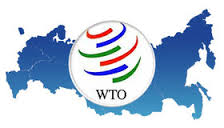Iran's accession to the WTO, the basis for sustainable economic development
Keywords:
Globalization, Iran economy, WTO, Challenges and solutionsAbstract
Globalization of economics is a powerful aspect of globalization. When a national economy interact with the Global Financial Institutions, especially the World Trade Organization (a pioneer in the field of International Financial Institutions), some factors affect the economic development of that country more than any other time. According to the general agreement on initial request of Iran for membership in WTO, it is important to consider the consequences of economic security through a careful consideration of the effects of the factors on economic security. Also it is necessary for politicians to know how to deal with the issues prudently to protect the national interests. These points are essential because Iran has no previous experience in the WTO trading system and any misunderstanding of Macroeconomics’ effect, can cause problems in Iran’s economic system. Since the slightest mistake in decision making could endanger economic and welfare security, Iran should gain a full understanding of the impacts of globalization and has good management in the global economy. To avoid making a hasty decision, it is essential to consider any threat against Iran and then to find strategies to substitute oil-based economy with non-oil based economy like carpets, saffron, etc. Therefore, Iran can take benefits of joining to the organization in order to achieve a dynamic and sustainable development in the country’s economy.
References
Azari, M., 2005. Iran and the WTO: Challenges and Opportunities", Tehran: Res. Inst. Econom. Pol., page 260, page 56.
Bidabad, B., Tabari, F., 2003. WTO and accession, Iran (pre-requisites for economic reform). Tehran, Page 251.
Foroughi Nia, H., 2003. Economic consequences - social, Iran's membership in the WTO. J. Polit. Econom., No. 10, pp. 88-122, pp. 88-94 used.
Habibi baghi, M., 2011. membership in the WTO and oil-dep. econom., Year VIII, No. 28, Spring, pp. 153 to 178, page 167.
Hakimian, M.H., 1997. Iran's membership of the World Trade Organization on the industrial sector. Tadbir, No. 77 Oct., pages 1 to 24, page 23 has been used.
Hashemian Esfahani, M., Gorgi, E., 2005. The effect of accession to the WTO on the economic security of developing countries to adopt policies guide the Islamic Republic of Iran. Know. Dev., Issue 21, Pages 11 to 34, page 31.
Kamali Ardekani, M., 2007. Competitiveness of the National Economy, accession to the WTO and Vision 1404. Bus. Rev., No. 35 of June and July, pages 2 to 13, page 5.
Mirjalili, H., 2002. Iran's membership in the WTO consequences. J. Polit. Econom. Informat., No. 218217, pp. 107 to 119, Pages 112-114 used.
Mojaver Hosseini, F., 2004. Estimates of Iran's accession to the WTO macro using a computable general equilibrium model. J. Bus., No. 3. Pages 1 to 38, pages 21-22 used.
Moosazadeh, R., 2003. International Organizations. Sixth Edit., Tehran, volume, page 336, page 237 used.
Pace, A., Kelly, K., 2006. international organizations, Dr Hossein Sharifi Trazkoohy, second edit., Tehran, volume, page 532, Pages 294-295 used.
Rafati, M., et al., 2002. Globalization and the Iranian economy. J. Bus. Stud., No. 6, June and July, pages 26 to 38, page 34.
Rahimi Far, M., 2000. Strategies for negative effects resulting from exposure to or membership in the World Trade Organization., June 8, pages 15 to 20, page 18.
Rezaei, H., 2003. Iran's prospects of joining the World Trade Organization. J. Polit. Econom. Informat., No. 68, pages 126 to 138, page 133.
Sabeti, A., 2003. WTO», navaieordib.persianblog.ir/page/22.
Zare, M.H., 2007. Iran's accession to the WTO legal requirements in the subsidy. Pol. Res. Right., a spec. WTO, No. 27, Fall-Winter, pages 74 to 106, page 79.

Published
How to Cite
Issue
Section
Copyright (c) 2020 Arezoo Bozorg Doagoo, Mohsen Saeidi

This work is licensed under a Creative Commons Attribution-NonCommercial-NoDerivatives 4.0 International License.



